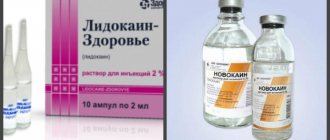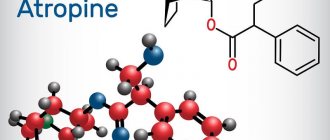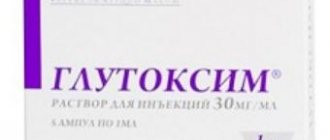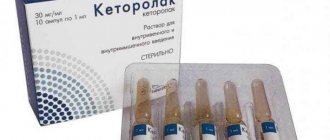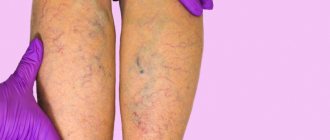Home | About us | Delivery | Advertisers | Login | Registration
- Medicines
- dietary supplementsVitamins
- Categories from A to Z
- Brands from A to Z
- Products from A to Z
- Medical equipment
- beauty
- Child
- Care
- Honey products appointments
- Herbs and herbal teas
- Medical nutrition
- Journey
- Making medicinesStock
Pharmacy online is the best pharmacy in Almaty, delivering medicines to Almaty. An online pharmacy or online pharmacy provides the following types of services: delivery of medicines, medicines to your home. Online pharmacy Almaty or online pharmacy Almaty delivers medicines to your home, as well as home delivery of medicines in Almaty.
my basket
Apteka84.kz is an online pharmacy that offers its customers medicines, medicinal and decorative cosmetics, dietary supplements, vitamins, baby food, intimate products for adults, medical equipment and thousands of other medical and cosmetic products at low prices. All data presented on the Apteka84.kz website is for informational purposes only and is not a substitute for professional medical care. Apteka84.kz strongly recommends that you carefully read the instructions for use contained in each package of medicines and other products. If you currently have any symptoms of the disease, you should seek help from a doctor. You should always tell your doctor or pharmacist about all the medicines you take. If you feel you need further help, please consult your local pharmacist or contact our GP online or by telephone.
© 2012 Pharmacy 84.
Lidocaine
For infiltration anesthesia
: intradermal, subcutaneous, intramuscular. Apply lidocaine solution 5 mg/ml (maximum dose 400 mg)
For blocking peripheral nerves and nerve plexuses
: perineural, 10-20 ml of a solution of 10 mg/ml or 5-10 ml of a solution of 20 mg/ml (no more than 400 mg).
For conduction anesthesia
: solutions of 10 mg/ml and 20 mg/ml (no more than 400 mg) are used perineurally.
For epidural anesthesia
: epidural, solutions 10 mg/ml or 20 mg/ml (not more than 300 mg).
For spinal anesthesia
: subarachnoid, 3-4 ml of a solution of 20 mg/ml (60-80 mg).
In ophthalmology
: a solution of 20 mg/ml is instilled into the conjunctival sac, 2 drops 2-3 times at intervals of 30-60 seconds, immediately before surgery or examination.
To prolong the effect of lidocaine, it is possible to add ex tempore 0.1% adrenaline solution (1 drop per 5-10 ml of lidocaine solution, but no more than 5 drops for the entire volume of the solution).
It is recommended to reduce the dose of lidocaine in elderly patients and patients with liver diseases (cirrhosis, hepatitis) or with reduced hepatic blood flow (chronic heart failure) by 40 - 50%.
As an antiarrhythmic agent
: intravenously.
Lidocaine solution for intravenous administration 100 mg/ml can only be used after dilution!
25 ml of a 100 mg/ml solution should be diluted with 100 ml of saline to a lidocaine concentration of 20 mg/ml. This diluted solution is used to administer the loading dose. Administration begins with a loading dose of 1 mg/kg (over 2-4 minutes at a rate of 25-50 mg/min) followed immediately by a continuous infusion at a rate of 1-4 mg/min. Due to rapid distribution (half-life approximately 8 minutes), 10-20 minutes after the first dose, the concentration of the drug in the blood plasma decreases, which may require repeated bolus administration (against the background of continuous infusion) at a dose equal to 1/2-1/3 loading dose, with an interval of 8-10 minutes.
The maximum dose in 1 hour is 300 mg, per day - 2000 mg.
The intravenous infusion is usually given for 12 to 24 hours with continuous ECG monitoring, after which the infusion is stopped to assess the need for changes in the patient's antiarrhythmic therapy.
The rate of drug elimination is reduced in heart failure and liver dysfunction (cirrhosis, hepatitis) and in elderly patients, which requires a reduction in the dose and rate of drug administration by 25-50%.
For chronic renal failure, no dose adjustment is required.
Side effects
If the allowed dosage of the spray was significantly exceeded, a person may experience side effects. Doctors note that they usually manifest themselves in the form of dizziness, nausea and vomiting. In some cases, even vision problems and hallucinations may occur.
Side effects from using an excessive dose of Lidocaine may include drowsiness, as well as a significant decrease in heart rate (or, conversely, its increase). Sometimes patients may experience numbness of the tongue, as well as difficulty breathing.
If Lidocaine is used rectally, you may experience involuntary bowel movements. As practice shows, many representatives of the stronger sex use this drug in order to prolong sexual intercourse - if the drug is abused for this purpose, some problems with potency may be observed.
Indications of the drug
The drug can be used only as prescribed by a doctor. Self-use may adversely affect your health. Lidocaine is widely used in medicine. It is used to administer various methods of anesthesia.
- Infiltration. It is commonly used to “freeze” certain tissues. This approach is mainly used in dentistry.
- Terminal. Pain receptors are temporarily blocked. The effect is short-lived.
- Conductor. Used during operations. Nerve impulses are blocked in a certain area.
- Spinal. It is used if it is necessary to reduce the pain threshold in the spinal center. To do this, an injection is made into the subarachnoid space. In this case, the roots of the spinal center are blocked.
- Epidural. In this case, it is necessary to give an injection into the epidural space.
The drug is indicated for the following types of pathologies:
- when the patient begins to develop ventricular arrhythmia, the causative agent of which is considered to be glycoside intoxication;
- for patients who suffer from coronary syndrome for preventive purposes;
Popular Strengths of pain relief with Ortofen injections
It is widely used in dentistry:
- for removing baby teeth in preschool children;
- when it is necessary to remove bones or apply sutures to wounds in the oral cavity;
- if there is a need to perform an autopsy during sudden abscesses;
- when installing a prosthesis or crown on the gum, to relieve pain in the gum itself;
- to destroy the papilla on the tongue;
- if there is a need to open a cyst in the salivary glands;
- in children, when a frenulectomy is needed.
Doctors treating ENT diseases use lidocaine injections in the following cases:
- when it is necessary to perform surgery to remove nasal polyps;
- for the treatment of deviated nasal septum;
- during electrocoagulation;
- before performing an operation to open a peritonsillar abscess;
- to administer anesthesia before performing a puncture of the maxillary sinuses;
- analgesic effect before rinsing the nasopharynx;
- before removing the tonsils (tonsillectomy);
- before removing the adenoids (adenoidectomy).
Not only before surgery, injections of the drug are used. He is appointed:
- when you need to numb the nasopharynx or mouth before inserting a probe;
- before examining the rectum with a probe;
- if there is a need to replace catheters.
This is only a small part of the procedures where the drug is used. Gynecology, ophthalmology, obstetrics, plastic surgery - its functions as an anesthetic are currently used in all areas of medicine.
Contraindications
The anesthetic has contraindications:
- in the presence of atrioventricular block (in this case, the conduction of the drug is impaired);
- diseases associated with the work of the heart (heart failure, decreased heart rate, low blood pressure);
- porphyria, or as it is also called “scientific vampirism”;
- the presence of neuromuscular malaise (myasthenia gravis) (striated and transverse muscles get tired very quickly);
- problems with the liver and kidneys, which impairs the excretion of lidocaine hydrochloride;
- allergic reactions to any of the components of the drug;
Allergies can cause anaphylactic shock. This is very dangerous as it can be fatal.
- breastfeeding and any trimester of pregnancy;
- low blood volume circulation rates.
Not only Lidocaine - drugs of similar action are strictly contraindicated for the patient.
What is special about Lidocaine?
Lidocaine injections act directly on the central nervous system, suppressing its conductivity. This happens because the components of the drug block sodium channels, which are located in nerve endings and fibers. After administering the solution, the drug begins to immediately act on the nerve endings. Effect up to 75 min.
Its properties are much superior to Procaine, to increase the duration of the anesthetic properties, it is used together with epinephrine.
The drug protects the body from arrhythmia. Its effect does not cause irritation on the skin and dilates blood vessels. In this case, calcium easily moves through the membranes, and the concentration of the solution reaches its maximum within 5 - 15 minutes after the antiseptic has been injected into the muscle.
Anesthetic composition
The active substance is lidocaine hydrochloride monohydrate. Its formula is supplemented with sodium chloride, and caustic soda acts as an auxiliary component. All these components are dissolved in water. Consequently, the solution itself does not have a characteristic odor and is colorless.
General information
The remedy in question is indispensable in the course of painful processes in the body. The range of its effects is quite wide - the remedy is used for many pathological conditions and diseases, which is why it is so popular among the Russian population.
Lidocaine spray is produced by a Russian pharmaceutical company. Today it is produced in small glass vials with a spray, 50 ml in volume. The drug is presented in liquid form, and the liquid has a transparent color. When you open a bottle of it, you feel a characteristic menthol aroma, provided by the addition of peppermint oil to the composition.
The name of the drug in Latin is Lidocain.
Pharmacokinetics and pharmacodynamics
The instructions for lidocaine spray note that this product has an excellent effect on soft tissues, preventing their irritation. The main feature of the medication is that it promotes the dilation of blood vessels in the place where it was applied. Experts in the field of medicine note that if the drug in question is used on a previously inflamed area, the effect of the main substance of the drug may be significantly weakened.
After application to the affected area, the main active components of the product are absorbed almost immediately and in full. It should be noted that when applying the product, it is necessary to strictly observe its permissible dosage, because, otherwise, there is a risk of side effects.
After using Lidocaine (spray), all its main components undergo a metabolization process in the liver and are then excreted by the kidneys.
Compound
The main component in Lidocaine (spray) is lidocaine hydrochloride. In total, the entire bottle contains 3.8 g, and one dose contains 4.8 mg of this substance. Lidocaine hydrochloride is the main active component, which reduces the sensitivity threshold of pain receptors. It belongs to the group of anesthetic and antiarrhythmic drugs.
In addition to the main active ingredient, the product in question also contains auxiliary ones. These include: propylene glycol, alcohol (96% ethanol), and peppermint oil, which also has a calming effect.
Experts in the field of medicine consider the positive quality of the product in question to be that it does not contain freon, which is found in most drugs that have a similar effect.
